Working visit by the vicar abbot of Saint Andrew’s Stavropegic Monastery to the exarchate of Belarus takes place.
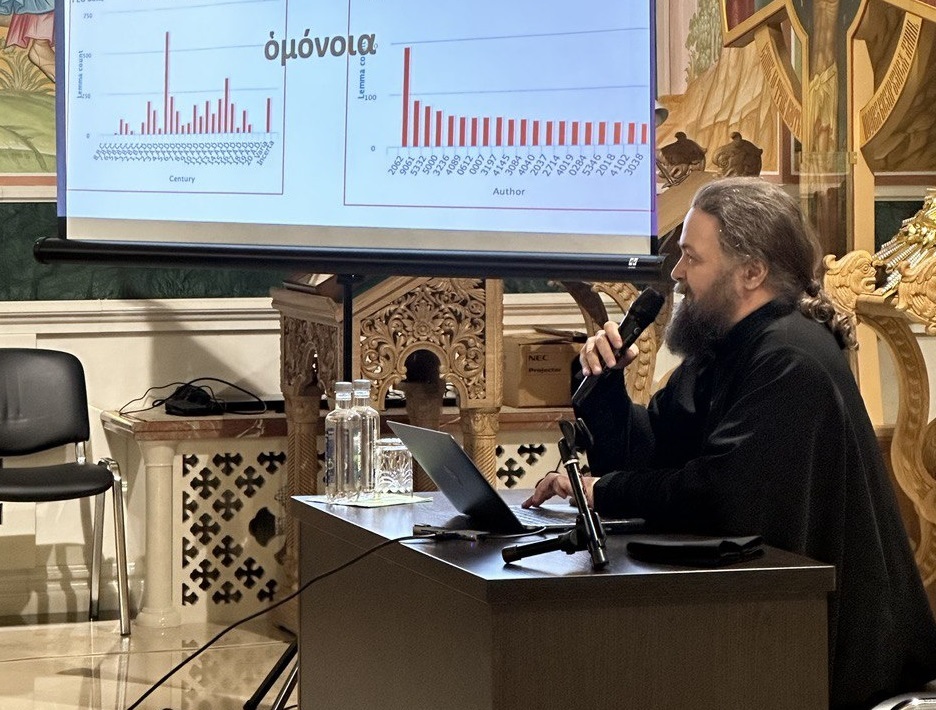
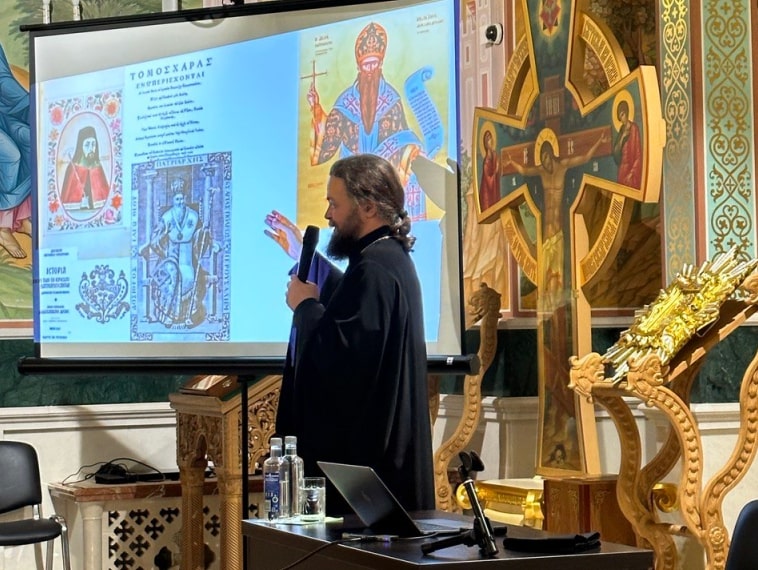
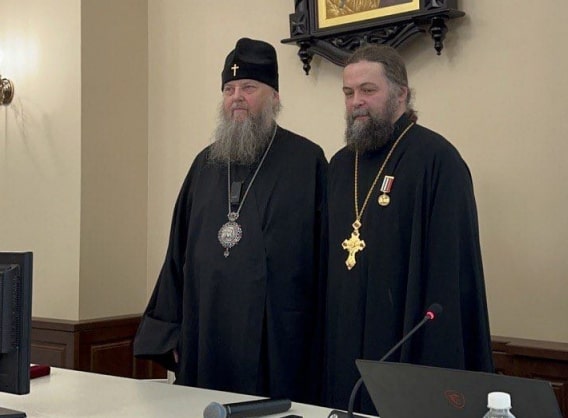
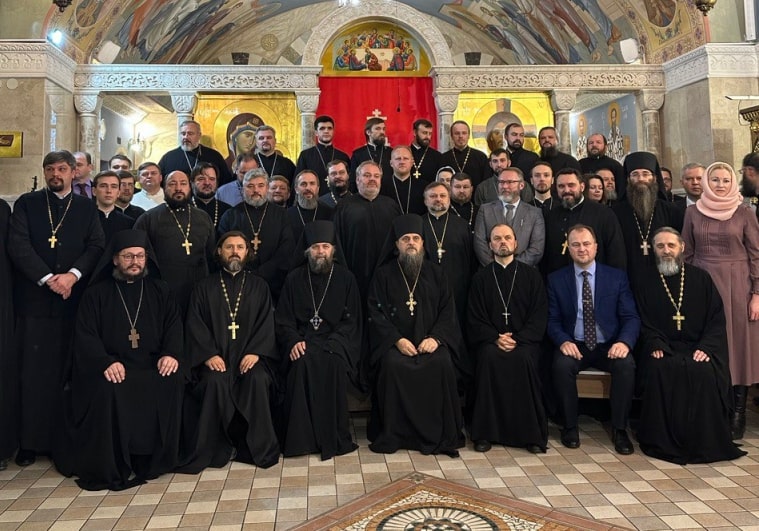
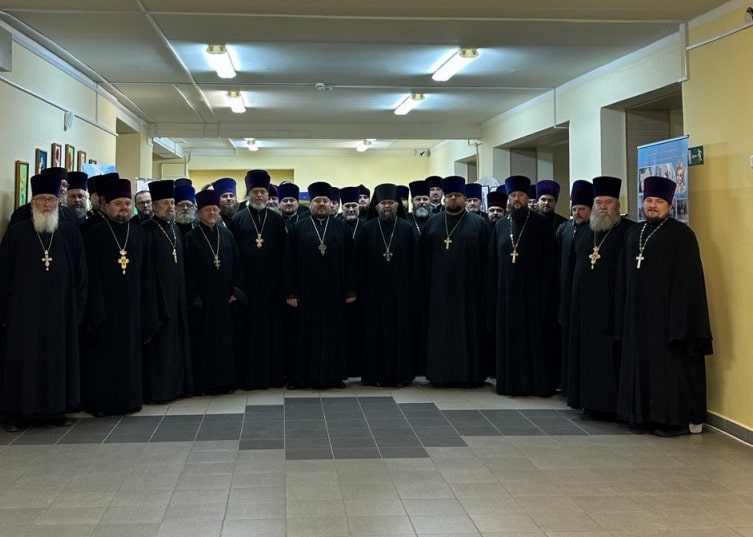
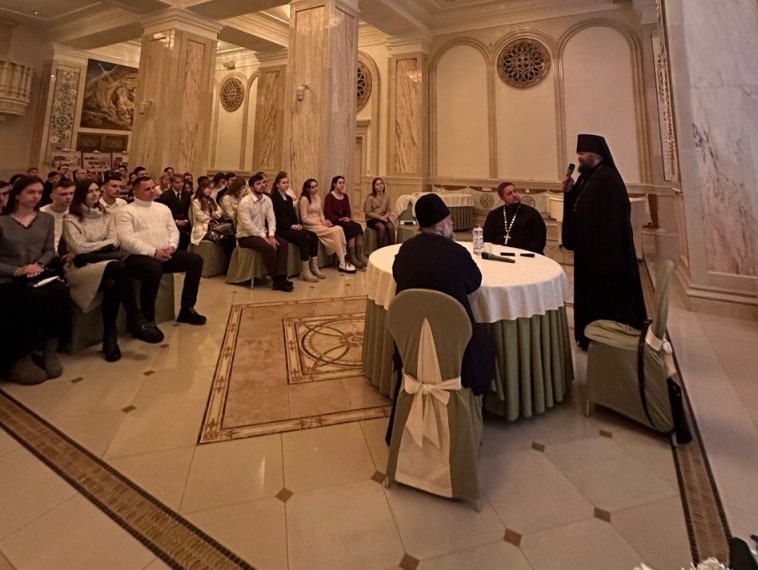
DECR Communication service, 23.11.2023.
From 13th
to 19th November at the invitation of the metropolitan of Minsk and Zaslava Benjamin the Patriarchal Exarch of All Belarus, the vicar abbot of Saint Andrew’s Stavropegic Monastery in Moscow, director of the postgraduate studies and professor of the Moscow Theological Academy abbot Dionysius (Shlyonov) undertook a working visit to the exarchate of Belarus.
The basic purpose of the visit was to deliver theological lectures and hold meetings as part of the general theological and educational work of the Belarusian Church of the Moscow Patriarchate. In 2017 the Belarusian exarchate began professional development courses for the clergy at the Minsk Theological Seminary and Academy. Meetings for diocesan clergy within the exarchate for the purpose of furthering theological knowledge had also become a tradition. The need for clergy to obtain further education had also become a pressing need.
What is happening in the Orthodox world? Why has eucharistic communion between the Russian Orthodox Church and the Patriarchate of Constantinople been broken off? How are we to describe and justify a conciliar ecclesiology which differs from an ecclesiology based upon an understanding of excessive primacy? What is the nature of the dangerous tendencies of the primacy of the Patriarchate of Constantinople in the modern world? It was to these questions that lengthy answers from the historical and canonical perspective were given in Father Dionysius’s lecture entitled ‘A Criticism of the Theory of the Primacy of Honour and Authority of the Patriarch of Constantinople’. The lecture was illustrated by dozens of slides.
On 13th November the same lecture was delivered to the clergy of the Grodno diocese. The lecturer explained to the audience the true meaning of the canonical tradition of the Orthodox Church, emphasizing the inadmissibility of extra-territorial decisions and approaches. The recognition of the so-called Orthodox Church of Ukraine by the Patriarchate of Constantinople in the autumn of 2018 was a categorically wrong action as the tendency to take unilateral decisions belonged to preceding eras but had at present assumed unacceptable forms.
On the same day in the lecture entitled ‘Repentance in the Patristic and Byzantine Tradition’ the clergy of the diocese of Grodno learnt about the history of the sacrament of repentance and the fundamental meaning attributed to it by Byzantine writers on this particular concept.
On 14th November the criticism of the theory of primacy was presented to the clergy of the two dioceses of Novgorodsk and Lida at the Holy Dormition Monastery at Zhirovichy. At the conclusion of the lectures the archbishop of Navahrudak and Slonim Gurius, the vicar abbot of the Zhirovchy monastery and rector of the Minsk Theological Seminary awarded abbot Dionysius with a medal to commemorate the 500th anniversary of the founding of the Holy Dormition Monastery in Zhirovichy.
On 15th November a similar meeting took place in Soligorsk with the clergy of the diocese of Slutsk.
The following day abbot Dionysius granted an interview to the Contact with the Light TV programme on Belarussian state television. Later, Father Dionysius participated in the seventh theological conference entitled ‘Ecclesiastical Learning at the Beginning of the Third Millenium: Contemporary Problems and Perspectives for Development’. He gave a paper on the doctrine of ecclesiastical courts as propounded by the fourteenth-century Byzantine canonist and theologian hieromonk Matthew Blastares in the context of his theological views.
After the plenary session of the conference a meeting took place between abbot Dionysius and the clergy of the diocese of Barysaŭ. Father Dionysius spoke about the conciliar ecclesiology of the Orthodox Church based on the principle of harmony, the violation of which by the application of the theory of primacy of authority as advocated by the Patriarch of Constantinople leads to irreparable consequences at both the theoretical and practical level.
On 17th November abbot Dionysius met with the clergy of the diocese of Gomel. His lectures there in particular examined the accusation of the so-called heresy of phyletism/ethnophyletism aimed the Bulgarian exarchate at the council of Constantinople in 1872 and made analogies with the current situation.
On 18th November abbot Dionysius concelebrated with the metropolitan of Minsk and Zaslava Benjamin and a host of clergy from the Belarusian Orthodox Church in the Church of the Nativity of the Virgin in the village of Tarasovo in the Minsk region.
The service was attended by the chairman of the state border committee of Belarus major general K.G. Molostov, the deputies of the chairman of the state border committee as well as students from the Institute of Border Service of Belarus. Before the start of the service the military personnel of the border troops brought into the church a banner from the Minsk border control detachment which had been blessed by the Patriarchal exarch at a joint prayer service with the border troops on 22nd November 2015. The army and especially the border troops keep the memory of Saint Michael the Archangel as the protector and defender of the military. Saint Michael is also venerated in the bell-tower church of Saint Andrew’s Stavropegic Monastery in Moscow.
On 19th November after the early liturgy in the Cathedral of the Holy Spirit in the city of Minsk two more meetings were held: one with young people in the Church of All Saints in Minsk and the other with the inmates of the Saint Elizabeth Convent. The meetings were of a spiritual and moral nature. At the meeting with young people a paper was given on tradition and freedom in patristic teaching.
The vicar abbot of Saint Andrew’s Monastery in Moscow and director and professor at the postgraduate studies at the Moscow Theological Academy abbot Dionysius (Shlyonov) returned to the Moscow monastic house with the scholarly acquisition of a complete catalogue of the Radziwill noble family which at present is kept in the Minsk central library and is the largest collection of old printed books in Belarus.
